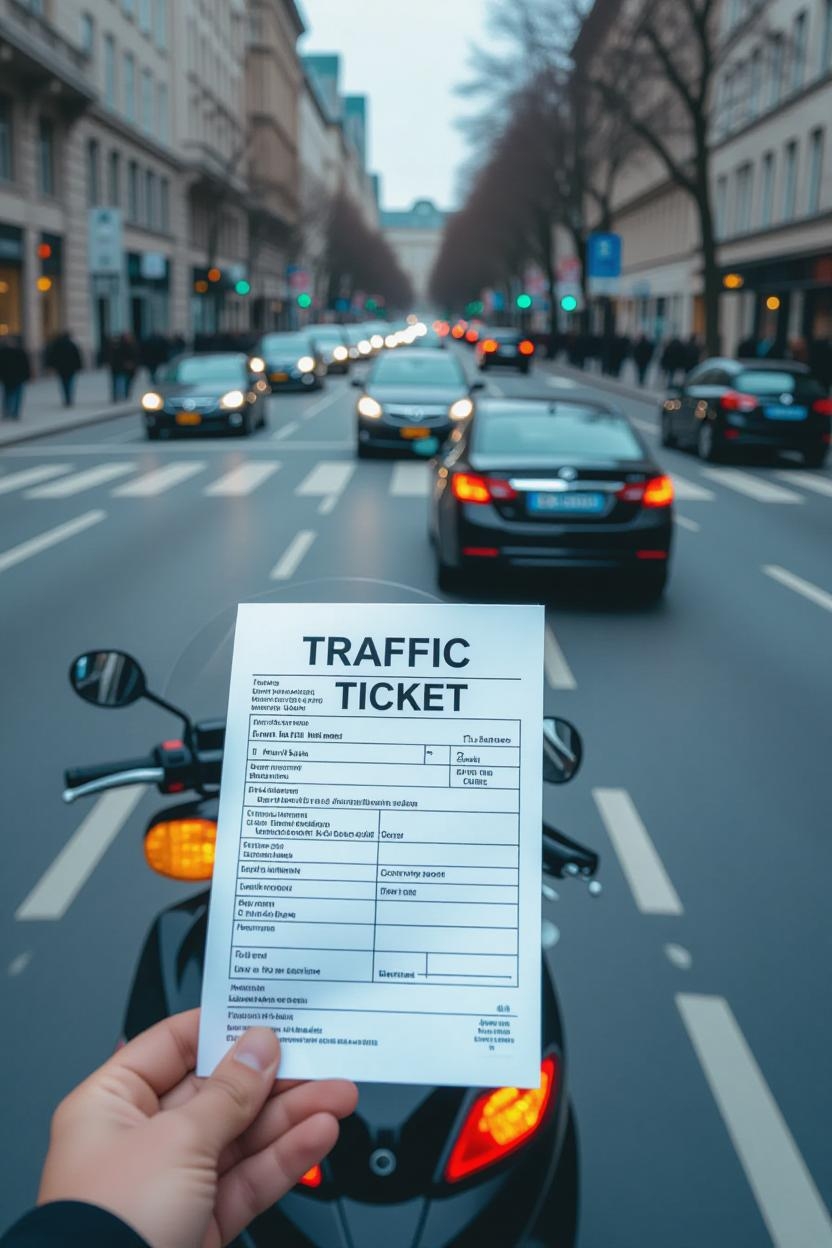How Long Does A Traffic Ticket Stay On Your Record?
Getting a traffic ticket is a frustrating experience, but its impact can extend beyond just paying a fine.
Many drivers wonder how long a traffic ticket stays on their record and what consequences it may have over time.
The answer depends on several factors, including the type of violation, the state where it occurred, and your driving history.
Understanding how traffic tickets affect your record is crucial for maintaining a clean driving record, keeping insurance rates low, and avoiding long-term legal issues.
In this guide, we’ll explore how long traffic tickets typically stay on your driving record and what you can do to minimize their impact.
How Long Does A Traffic Ticket Stay On Your Record?
The duration a traffic ticket stay on your driving record hinges on several factors: the type of violation, the state’s regulations, and the policies of the Department of Motor Vehicles (DMV) or equivalent agency in your jurisdiction.
Minor tickets, like speeding or running a stop sign, typically linger on your record for 3 to 5 years in most U.S. states, but the clock starts differently depending on whether it’s from the violation date, conviction date, or when points are assessed.
More serious offenses and traffic tickets that are misdemeanor, like DUIs or reckless driving, can stick around for 7 to 10 years, or even permanently in some states.
Each state’s DMV has its own point system, and tickets add points that can accumulate, potentially leading to license suspension if you hit a threshold.
Core Mechanics Of Traffic Ticket On Your Record

A traffic ticket’s lifespan on your record is primarily determined by how states track violations through their point systems and databases.
- When you receive a ticket, it’s typically reported to the DMV after a conviction (paying the fine often counts as admitting guilt).
- The violation is then assigned points based on severity—e.g., speeding might add 2 points in some states, while reckless driving could add 4 or more.
- These points stay on your record for a set period, influencing both your driving privileges and insurance rates.
However, the “start date” for this period varies: some states count from the violation date, others from the conviction date, and a few from when points are officially logged.
Underemphasized Factors
Several aspects get short shrift in typical online explanations:
- Insurance Impact: Insurers often review your record for 3 to 5 years, but some use a 7-year lookback for major violations. A single ticket can raise premiums by 10-20% or more, and this financial penalty may persist even if the ticket is no longer on your DMV record.
- Commercial Drivers: CDL holders face stricter rules. Federal regulations (e.g., FMCSA’s Clearinghouse) track violations for commercial drivers, and tickets can stay on longer—sometimes indefinitely for serious offenses like DUIs.
- Expungement: Unlike criminal records, traffic tickets are rarely expungeable, but some states allow limited relief. For instance, New Jersey permits certain clean-slate expungements, but only for non-serious violations after a long period.
- Non-Point Violations: Some tickets, like parking violations or equipment infractions (e.g., broken taillight), don’t add points and may not appear on your driving record at all, though they’re still tracked in court or DMV systems for administrative purposes.
- Juvenile Records: Tickets issued to minors may be sealed or removed upon reaching adulthood in some states, a detail seldom mentioned.
Why It’s Not One-Size-Fits-All
For example, a speeding ticket for going 10 mph over the limit in Virginia might carry 3 points and stay for 5 years, but the same offense in Colorado could carry 4 points and last 7 years if it’s deemed reckless.
Additionally, accumulating too many points within a specific timeframe (e.g., 12 points in 12 months in California) can trigger license suspension, and the duration of that suspension may extend the practical impact of a ticket.
Another overlooked factor is how courts handle tickets. If you contest a ticket and win, it may not appear on your record at all.
Alternatively, plea bargains or deferred adjudication programs (common in states like Texas) can keep points off your record if you meet conditions, like completing a defensive driving course.
What Can A Traffic Ticket On My Record Do?
A ticket on your record can:
- Increase insurance premiums, sometimes for years after the points are removed.
- Affect job prospects, especially for roles requiring a clean driving record (e.g., delivery drivers).
- Lead to license suspension or revocation if points accumulate or if you fail to pay fines.
- Influence future traffic stops, as officers can see your driving history and may scrutinize you more closely.
How To Check How Long Your Traffic Ticket Is and Mitigate
To know exactly how long a ticket will stay on your record, request a copy of your driving record from your state’s DMV (often available online for a small fee).
This shows all violations, points, and their expiration dates. To mitigate a ticket’s impact:
- Consider traffic school (if eligible) to remove points or mask the violation.
- Contest the ticket in court if you believe it was issued unfairly, though success rates vary.
- Shop around for insurance, as some companies weigh tickets less heavily.
Summary

The duration a traffic ticket remains on your driving record depends on the violation’s severity, state-specific regulations, and how the DMV tracks infractions.
Minor violations, like speeding or stop sign tickets, typically linger for 3-5 years, while moderate offenses, such as reckless driving, may stay for 5-7 years.
Severe violations, like DUIs or vehicular manslaughter, can persist for 7-10 years or remain permanently in some states.


